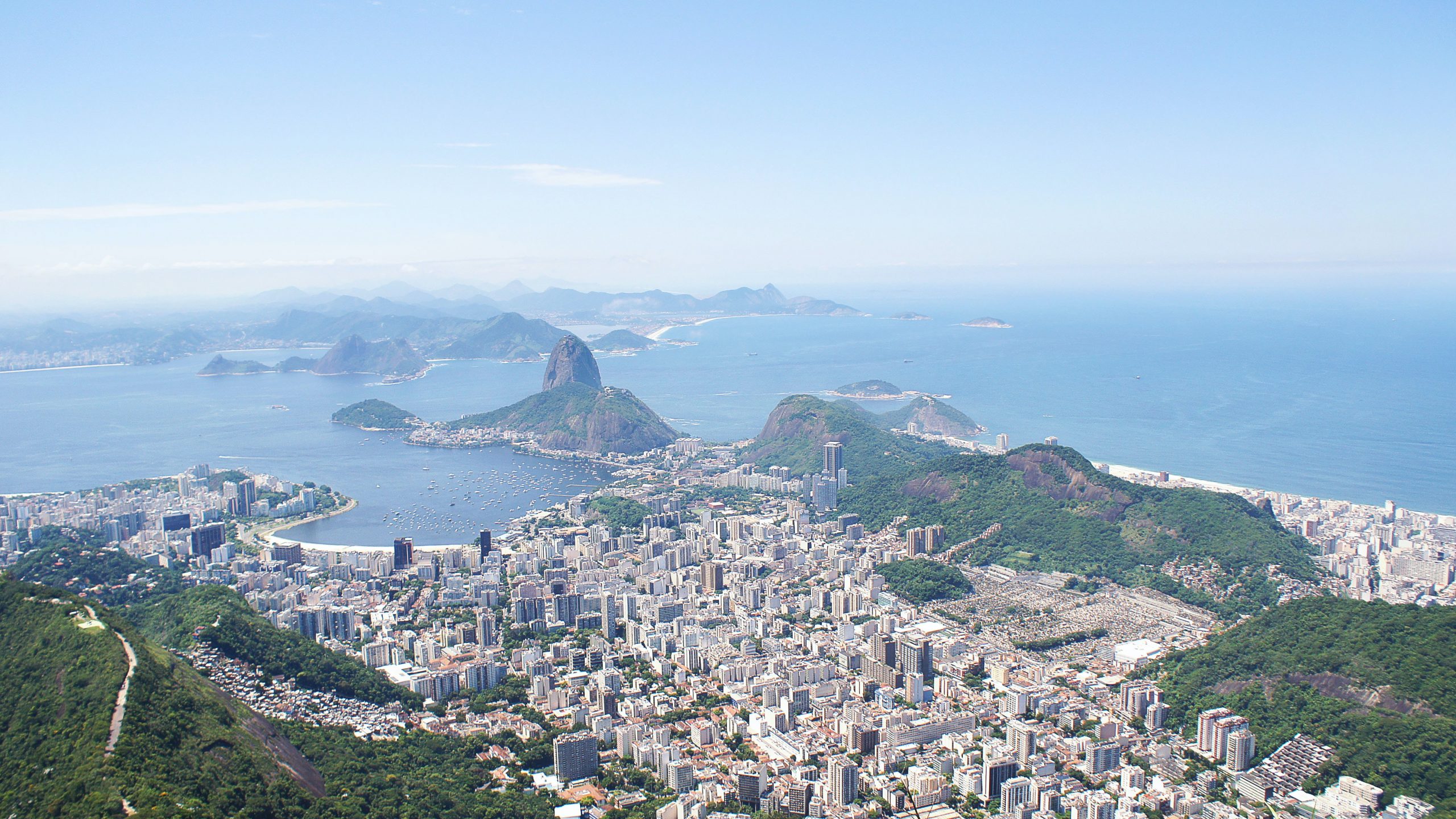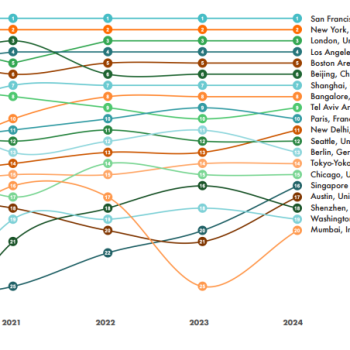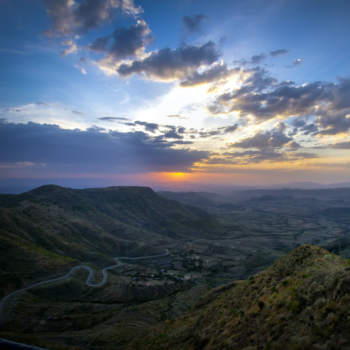Overview of South America’s Startup Ecosystem
South America as a continent is becoming a more welcoming environment for startups, with 9 countries in the top 100 including Brazil, Chile, Argentina and Colombia. This part of the world is becoming a hub for startups with promising innovation strategies, investment opportunities and rapid market growth.
In 2020 the top player in the region, Brazil, jumped by an impressive 17 spots to 20th. Argentina was another success, climbing 6 spots to 38th and is now ranked 3rd regionally. Two notable declines were Columbia, falling 12 places to 46th and Chile which dropped 4 places, finding itself ranked at 34th. Despite the drops all four countries remain within the top 50, nevermind the top 100 globally.
With Brazil now the leader in startup ecosystems followed closely by Chile, and Argentina. Sao Paulo’s success over the past year has brought it to an amazing position at 18th globally in 2020 in the StartupBlink top 1000 cities ranking. Some of the major city hubs have, however, seen a decline in 2020: Lima (fell 43 spots to 111th), Belo Horizonte (fell 31 spots to 101st), Rio de Janeiro (fell 29 spots to 93rd), and Bogota (fell 25 spots to 77th).
Despite these fluctuations, South America is a growing global market making it an excellent environment for startups, filled with investment, business and financial opportunities.
Brazil
Ecosystem Overview
Brazil is the strongest startup ecosystem in South America. From 2019 to 2020 it has gone from 37th place to 20th an incredible jump of 17 places and for good reasons. Ranking at number 18 globally and climbing 5 positions in the last year Sao Paulo has become the country’s main startup arena and a city that has developed into a global hub for innovation and activity.
Although Brazil finds itself in the top 20, Sao Paulo is the only city that finds itself in the top 40 from the LATAM region. Furthermore, 29 of Brazils’ cities remain in the top 1000 globally. With such a large number of cities in the ranking it has given Brazil the depth and innovation needed for the jump to the top 20 globally.
Insight and Trends
The huge market size of Brazil, with a population of 211 million is a big factor toward the country’s success. The Brazilian government has been working hard to decrease red tape and their efforts are reaping the benefits. However, high interest rates and lack of private investment capital are big factors which demotivate a lot of Brazilians and reduce the innovation of startups.
Furthermore, considering the vast potential of the Brazilian market and a population of more than 200 million people, the tech ecosystem has all the conditions for rapid growth. This is demonstrated with a growing number of unicorns, most of which cater the local market. We can only hope the pro business approach continues while Brazil maintains, protects, and leverages the unique natural resources that country has to offer.
Notable Startups
Dafiti – Started in 2011, Dafiti is an e-commerce site that delivers apparels, shoes and accessories. The company has managed to raise $250 million of equity funding through several rounds.
Nubank – The first Brazilian company to raise funding from Sequoia, Nubank offers a digital credit card for smartphones and payment. It has raised $14.3 million in funding.
QuintoAndar – Quinto Andar is a Brazil-based platform that helps streamline rental processes for tenants and landlords.
Chile
Ecosystem Overview
Chile is now the 2nd ranked ecosystem in South America and needs more cities to join the success seen in the capital of Santiago. In 2020, Chile has dropped 4 places to 34th in the global countries rankings. As a city, the capital of Santiago dominates nationally, despite falling 1 place to number 60 in the global cities rankings. Santiago also ranks 4th in the regional city rankings of South America, behind Sao Paulo and Buenos Aires.
There are 4 additional Chilean cities in the top 1000, yet unfortunately all have dropped more than 100 places from their respective positions in 2019, with Viña del Mar ranked highest at 453. This negative trend will need to be reversed for Chile to continue being a leading startup ecosystem in South America.
Insight and Trends
Chile is one the most successful economies in South America, and is often mentioned as an example for the potential of South America to build a modern and robust economy. The country has also done well fostering startup innovations, and it seems that when its young people are focused on building new things instead of protesting on unfair anomalies from the past, results are better for both them and their country.
Chile’s startup ecosystem is mostly known for its “Startup Chile” program, giving entrepreneurs around the world generous support if they attend a few months at an accelerator in Santiago. The long-term impact of this program on the Chilean startup ecosystem is left to be seen, but it seems positive so far, which might justify future expenditure. However, it was clearly substantial from the marketing side and got Chile global acknowledgment.
Notable Startups
NotCo – a food tech company which is using AI technology to create delicious, sustainable and accessible plant-based foods. Combining food science with AI this Chilean startup is creating delicious and nutritious plant-based alternatives to dairy.
Odd Industries – Odd Industries creates computer vision platforms to transform offline processes into online data using artificial intelligence for sustainable construction. This startup is allowing for better decisions to be taken, with better information.
Algramo – A startup focusing on providing reusable packaging made specifically for the consumer. Using radio frequency to create this innovative solution to packaging waste the startup aims to create bulk products creating wholesale relationships with various industries.
Argentina
Ecosystem Overview
Argentina is the 3rd highest ranked startup ecosystem in the South American region. Argentina continues climbing the rankings, and after an increase of 6 spots secures its place as a top 40 global country at 38. Argentina is considered to be one of the fastest growing ecosystems in the region, taking a respectable 3rd place after Brazil and Chile.
Taking into account the size and the population of the country, Argentina has a low quantity score and only one dominant startup ecosystem, Buenos Aires, currently ranked in the top 50 list after rising by 2 spots to 46th globally and 2nd regionally. The other three Argentinian cities in the rankings, Cordoba, Mendoza, and Rosario, have fallen by 63, 4 and 210 places respectively to be now ranked at 319, 431, and 777. Provided that Argentina continues to strengthen the Buenos Aires scene and narrows the gaps between other cities and the capital, we see a positive future for this ecosystem.
Insight and Trends
Argentina was one of the richest economies in the world 100 years ago, and its current state of constant economic woes is not helping its local entrepreneurs thrive. There is still too much bureaucracy and red tape in the Argentinian economy. More should be done to make sure local entrepreneurs feel that they can create startups with regional and global impact from Argentina. The public sector should treat its entrepreneurs as a valuable resource, the startup ecosystem will not be able to continue rebuilding itself if policies reverse in an uncertain environment.
Notable Startups
Henry – Henry trains software developers for free and helps them find a job in exchange for a share of their future income.
Aplife Biotech – Aplife Biotech is an Argentinean biotech Start-up currently in the process of developing cutting-edge technology.
Circular – Circular is a cloud collaboration platform that improves the lives of all participants in the logistics chain.
Colombia
Ecosystem Overview
Colombia, like several other South American countries, has plunged down the rankings. After a 12 spot decrease, it ranks at 46 globally and 5th in the region. Leading the Colombian startup ecosystem is Bogota which, despite being the 5th best city in South America, has fallen by 25 spots to be ranked at 77.
Colombia’s 2nd city, Medellin, moved further from the top 100 list after a drop of 24 spots to 131, while Barranquilla, ranked 4th nationally, has dropped 213 places to 623 globally. On a positive note, we want to welcome a new entrant: the third ranked startup ecosystem in Colombia is Cali at 330. Read more about the Cali Startup Ecosystem here.
Insight and Trends
Colombia has made an immense geopolitical recovery since the year 2000 and its startup ecosystems have followed with impressive jumps over the years, making the country a regional South American startup hub. Medellin is an increasingly popular location for expats and digital nomads to work on their startups, and has the potential of giving a real international boost to the local startup ecosystem. The 1 billion investment of Softbank in Rappi, a Colombian delivery app, is a powerful signal to show the potential of Colombian startups’ in taking the lead on a regional level.
Notable Startups
Rappi – Online food ordering platform
1DOC3 – An e-health platform that connects people with licensed and trusted doctors. The Platform is available via web, app, SMS and USSD, allowing people access to a Doctor no matter where they are, or even if they don’t have internet access.
ADDI – Addi is a technology company that provides credit and banking solutions.
Peru
Ecosystem Overview
Peru remains a main hub in South America, although its capital has dropped out of the top 100 cities globally. This year, Peru has moved upwards by 1 spot to rank 56 in the global countries rankings. The capital, Lima, is the only Peruvian city in the rankings, reaching 111 globally after dropping 43 spaces since its appearance in the top 100 in 2019.
At a regional level, Lima ranks 9th in South America behind the Brazilian cities of Rio de Janeiro and Belo Horizonte at 5th and 6th respectively. For Lima to become a true hotspot in South America, it must find its way back into the top 100. Additionally, more cities in Peru, such as Arequipa and Trujillo, should develop their ecosystems to distribute tech hubs across this vast country.
Insight and Trends
The government realizes that startups are critical for the future, and a few initiatives such as StartUp Perú and Innovate Peru are offering support for local entrepreneurs. However, the Peruvian startup ecosystem still has room to grow by finding ways to attract more international funding and investors.
Notable Startups
Keynua – Keynua is a provider of e-signatures used to identity verification and validating transactions.
Chazki – Helps e-commerce, businesses, and people distribute and dispatch packages easier and faster.
JoinnUs – Facilitates the meeting offline to perform the group activity as organized.
Uruguay
Ecosystem Overview
Uruguay country’s rank increased by 5, to 66 globally. Uruguay is the 7th highest ranked country ecosystem in South America, lagging behind Peru. Uruguay has only one city in the rankings, its capital, Montevideo, which is now ranked relatively low at 275 after a decline of 130 spots. The country’s main advantage is its stability.
Insight and Trends
Surrounded by nations facing ongoing economic and political crisis, Uruguay is an island of certainty in comparison to its neighbours. The government is also supporting the local ecosystem, but local talent is still scarce and successful startups are relatively hard to find. Uruguay has to make sure its local talent stays in the country while encouraging more foreign entrepreneurs and investors to consider it as a place to scale regional and global startups.
Notable Startups
Flokzu – Flokzu is a cloud-based Business Process Management (BPM) app which defines and automates document workflows between people, in organizations or teams.
Nocnoc – This Uruguayan startup aims to facilitate e-commerce by connecting international sellers to Latin American marketplaces. By providing this gateway Nocnoc focuses on facilitating the international selling process for their clients, ensuring them advantageous transactions and access to a wider market.
Paganza – This mobile-app allows users to make financial transactions and pay bills using their smartphones. Paganza also allows users to see their transaction history, keep track of expenses and schedule reminders for paying bills.
Ecuador
Ecosystem Overview
Ecuador’s ranking has increased by 6 spots, pushing it up to rank 71 in 2020. Ecuador ranks 8th regionally in South America, just behind Uruguay. Ecuador has a deep entrepreneurial culture with three million adults between 18-64 years old owning or starting a business, according to the Global Entrepreneurship Monitor in 2017. Despite this, Ecuador now has only one city in the rankings after the departure of Guayaquil this year from the top 1000 list. As the only remaining Ecuadorian City, Quito did not keep up with its competition, and dropped 89 spots to 272.
Insight and Trends
In comparison to its peers in South America, Ecuador is a relatively secure country with an abundance of natural resources, while its strongest verticals for startups include fintech, logistics, and edtech. For Ecuador to close the gap with other countries in the region like Brazil, Chile, and Argentina, it will need to reverse the momentum of Quito and make sure at least 2 other cities enter the rankings.
Since Ecuador’s currency is US Dollars, and due to its similar time zone with the USA, there are many Americans relocating to Ecuador and working there remotely on their business. If the public sector finds a way to motivate them to incorporate in Ecuador and hire local talent to grow their businesses, it could give Ecuador’s startup ecosystem a substantial boost.
Notable Startups
Kriptos – Using AI technology Kriptos preempts data leakage by enabling businesses to locate their most critical information through a sophisticated software that analyzes, classifies and labels documents automatically.
Mensajea – This AI-powered chatbot builder that integrates financial institutions and e-commerce platforms. Companies use Mensajeas technology to automate social media processes ensuring improved customer service, easier data collection, campaign development and reduced costs.
Agroscan – This Ecuadorian startup uses AI, drone footage and cloud processing to create precision agriculture algorithms. This AI technology allows for better decisions to be made in relation to agriculture, including crop growth, pesticides and agricultural turnover.
Paraguay
Ecosystem Overview
Paraguay rounds out the top 80. This South American country skyrocketed by 16 spots in 2020 to rank 80. Regionally, Paraguay is the 9th best ecosystem in South America, just behind Ecuador. Its capital, Asuncion, could not keep up with intense competition on the city level, and dropped 44 spots to stand at 455th place.
Insight and Trends
The local startup ecosystem scene needs more government initiatives to ease business ownership, and the nation must find ways to attract highly skilled talent. Paraguay needs to improve its capital city’s rankings and also create a new ranked national hub in order to sustain and continue its trajectory forward.
Notable Startups
Posibillian Tech – Posibillian Tech commits to devise unique social experiences through technology, redefining social entertainment.
TAXit – This mobile app and online platform offers a tax processing and settlement system for their clients. Through their application, customers can upload photographs of their tax receipts, classify them, and settle their taxes.
Abitapp – Abitapp allows building managers to settle and manage expenses, manage tenants, and generate reports all in one platform. This Paraguayan Startup uses Fintech features to provide users with transparent information about the country’s building management platform.
Venezuela
Ecosystem Overview
While Venezuela’s country ranking is stable, its capital city rises. In 2020 Venezuela stayed relatively stable on the country ranking, decreasing one spot to 94, mainly due to the deteriorating geopolitical and economic situation affecting the country’s business score. Of the 12 countries in South America, Venezuela comes in at 10th. The capital, Caracas, has risen by 82 spots in the global ranking to 413. An impressive feat, considering the difficulties entrepreneurs from Venezuela are dealing with.
Insight and Trends
If the political and economic situation improves soon, the country is expected to greatly narrow the gap from the other South American ecosystems. For now, we commend them for their achievements in the current environment.
Notable Startups
PideYummy – PideYummy is the first food delivery App in Venezuela with more than 120 locations available.
SocialGest – A social media management platform that helps their customers grow their social media platforms through various tools. Users can schedule, analyze, do contests, and monitor their social media from one place.
SinCola – is a solution that manages the full cycle of customer care, from before the customer reaches the site to even after being treated. Sincola is working in hospitals to offer appointments, and appointment reminders through SMS.
Bolivia
Ecosystem Overview
Previously ranked in 98 in the world, Bolivia has seen some stagnation and fallen out of the top 100 cities. The Bolivian public sector needs to actively promote their startup ecosystem and provide incentives for foreign startups to relocate.
Insight and Trends
La Paz is the only innovation hub in the country and should work on increasing its startup accelerators and incubators to match their neighbors. Bolivia has a long path to creating a powerful and successful startup ecosystem however with perseverance and through some creative incentives the country is sure to regain its spot in the top 100 in the coming years.
Notable Startups
Jukumari Advice – A photo based marketplace for advertising tour operators.
Discovereel – Provide tools for the creation of meaningful connections between entrepreneurs and their local/global ecosystem and facilitate a co-creation process where collaborators act as a bigger organism to materialize projects with an inclusive purpose.
UltraCasas -UltraCasas.com is a real estate search engine and a Bolivian internet company focused on innovation and technology to generate online tools that facilitate easy home search in Bolivia.








